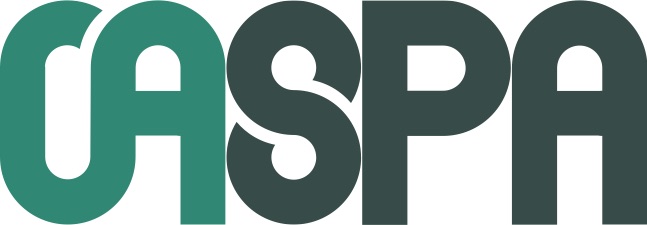معصوم من الخطأ ام غير معصوم لاستخدام الطلاب: مقابله واعترافات مع منصة الذكاء الاصطناعي تشات جي بي تي
DOI:
https://doi.org/10.36473/2zaxcp93الكلمات المفتاحية:
منصة الذكاء الاصطناعي، أداة الذكاء الاصطناعي، التعليم والبيانات المدربة مسبقا.الملخص
في هذه الدراسة تمت مقابلة OpenAI ChatGPT المعروف باسم GPT-3 (المحول التوليدي المدرب مسبقًا) وأداة التعلم لديها القدرة على الابتكار وتوليد الأفكار. يدور نطاق الدراسة حول استخدام OpenAI ChatGPT من قبل الطلاب وتأثيره عليهم. تم طرح العديد من الأسئلة وتلقي الردود من ChatGPT. وحتى هذه الدراسة ليست الأولى فيما يخص OpenAI ChatGPT، إلا أن أصالة هذه الدراسة تتمحور حول ترسيخ فكرة استخدام الطلاب الأعمى للذكاء الاصطناعي. تظهر النتيجة أن ChatGPT له مزايا وعيوب على الطلاب. المزايا سطحية للطلاب، لكن العيوب تؤثر عليهم بشكل عميق بما في ذلك صحتهم ومجتمعهم وبيئتهم. في الأقسام التالية، تناقش الدراسة OpenAI ChatGPT ودوره على الطلاب.
التنزيلات
المراجع
Aydın, Ö., & Karaarslan, E. (2023). Is ChatGPT leading generative AI? What is beyond expectations? What is beyond expectations. https://papers.ssrn.com/sol3/papers.cfm?abstract_id=4341500
Alghamdi, R. S., Mohamed, A. M., & Shaaban, T. S. (2023). Artificial Intelligence and teachers' sustainability: Preschool teachers' perceptions of conditions and level of support for Professional Development in Early Childhood Special Education. Alustath Journal for Human and Social Sciences, 62(4), 332-357. https://doi.org/10.36473/ujhss.v62i4.2272
Ali, S., & Abdul, N. (2024). Assessing Iraqi ESL Fourth Year College of Physical Education and Sport Sciences Students' Writing Anxiety. Alustath, 63(1). https://doi.org/10.36473/7sv84632
Abdel Qader & Matari (2024). A proposed program based on communication theory to develop digital reading skills For primary school students. (n.d.). ALUSTATH JOURNAL FOR HUMAN AND SOCIAL SCIENCES, 63(2), 113- 139. https://doi.org/10.36473/p7hg6279
Black, D., Bissessar, C., & Boolaky, M. (2019). Online education as an opportunity equalizer: The changing canvas of online education. Interchange, 50, 423-443. https://link.springer.com/article/10.1007/s10780-019-09358-0
Day, C. (2004). A passion of teaching. London: Routledge Falmer. https://books.google.com/books?hl=en&lr=&id=vxyCAgAAQBAJ&oi=fnd&pg=PR10&dq=Day,+C.+(2004).+A+passion+of+teaching.+London:+Routledge+Falmer.+https://books.google.com/books%3Fhl%3Den%26lr%3D%26id%3DvxyCAgAAQBAJ%26oi%3Dfnd%26pg%3DPR10%26dq%3DDay,%2BC.%2B(2004).%2BA%2Bpassion%2Bof%2Bteaching.%2BLondon:%2BRoutledge%2BFalmer.%26ots%3DF0l8VFiVxa%26sig%3DS6NmEHa537T2vsqqBltVzryjmng+&ots=F0l8VFjVCa&sig=TDK00u4zx6ZESJsAz5vrIEvmumQ
Dziewanowska, K. (2017). Value types in higher education–students’ perspective. Journal of Higher Education Policy and Management, 39(3), 235-246. https://www.tandfonline.com/doi/abs/10.1080/1360080X.2017.1299981
Eysenbach, G. (2023). The role of ChatGPT, generative language models, and artificial intelligence in medical education: a conversation with ChatGPT and a call for papers. JMIR Medical Education, 9(1), e46885. Retrieved from https://mededu.jmir.org/2023/1/e46885/
Furtado, M. S. &Saldanha, S. D. (2023). Practicing Ethical Education: A Teacher’s perspective. In Sanjayan, T. S. (Eds) Rebuilding Teaching Learning Competences in Digital Era. Taran Publication. Retrieved from https://scholar.google.com/scholar?hl=en&as_sdt=0,5&q=Furtado,+M.+S.+%26+Saldanha,+S.+D.+(2023).+Practicing+Ethical+Education:+A+Teacher%E2%80%99s+perspective.+In+Sanjayan,+T.+S.+(Eds)+Rebuilding+Teaching+Learning+Competences+in+Digital+Era.+Taran+Publication.#:~:text=Ethics%20in%20the%20Teaching%20Profession%3A%20A%20Practical%20Approach%20to%20Teachers%27%20Professionalism
Gallenstein, N. L. (2005). Engaging young children in science and mathematics. Journal of Elementary Science Education, 17(2), 27-41. https://link.springer.com/article/10.1007/BF03174679
Malik, G., Tayal, D. K., & Vij, S. (2019). An analysis of the role of artificial intelligence in education and teaching. In Recent Findings in Intelligent Computing Techniques: Proceedings of the 5th ICACNI 2017, Volume 1 (pp. 407-417). Springer Singapore. https://link.springer.com/chapter/10.1007/978-981-10-8639-7_42
Hsu, F. H. (2002). Behind Deep Blue: Building the computer that defeated the world chess champion. Princeton University Press. Retrieved from https://books.google.com/books?hl=en&lr=&id=zV0W4729UqkC&oi=fnd&pg=PR9&dq=Hsu,+F.+H.+(2002).+Behind+Deep+Blue:+Building+the+computer+that+defeated+the+world+chess+champion.+Princeton+University+Press.&ots=yrGxV4LSjf&sig=yUFOZm4xdP8pNEQMETJ9RVsUtvw
Hosek, A. M., & Titsworth, S. (2016). Scripting knowledge and experiences for millennial students. Communication Education, 65(3), 357-359. https://www.tandfonline.com/doi/full/10.1080/03634523.2016.1177844
Illingworth, S. (2023). ChatGPT: students could use AI to cheat, but it’sa chance to rethink assessment altogether. Rederived from https://napier-repository.worktribe.com/output/3007174/chatgpt-students-could-use-ai-to-cheat-but-its-a-chance-to-rethink-assessment-altogether
Iskender, A. (2023). Holy or Unholy? Interview with Open AI’s ChatGPT. European Journal of Tourism Research, 34, 3414. https://ejtr.vumk.eu/index.php/about/article/view/3169
Pearson, D. (2014). Are students culturally intelligent?—The results. Common Purpose. Retrieved from https://scholar.google.com/scholar?hl=en&as_sdt=0%2C5&q=Pearson%2C+D.+%282014%29.+Are+students+culturally+intelligent%3F%E2%80%94The+results.+Common+Purpose.&btnG=#:~:text=%5BCITATION%5D%20Are%20students%20culturally%20intelligent%3F%E2%80%94The%20results
Paschal, M.J. (2023). Ethics in the Teaching Profession: A Practical Approach to Teachers’ Professionalism. International Journal of Social Sciences and Educational Studies, 10(3), 82-94. Retrieved from https://www.researchgate.net/profile/Mahona-Paschal/publication/371305573_Ethics_in_the_Teaching_Profession_A_Practical_Approach_to_Teachers'_Professionalism/links/647e0ce0d702370600d6a520/Ethics-in-the-Teaching-Profession-A-Practical-Approach-to-Teachers-Professionalism.pdf
Serin, H. (2023). Effective Teaching: Passion and Commitment. International Journal of Social Sciences and Educational Studies, 10(3), 60-64. https://eprints.tiu.edu.iq/1452/
Serin, H. (2023). Teaching Mathematics: Strategies for Improved Mathematical Performance. International Journal of Social Sciences and Educational Studies, 10(3), 146-150. https://eprints.tiu.edu.iq/1451/
Totlis, T., Otountzidis, N., Papadopoulos, S., Piagkou, M., & Natsis, K. (2019). Ulnar trochlear notch articular surface has three morphological patterns: a neglected major anatomical feature. Surgical and Radiologic Anatomy, 41, 1333-1336. https://link.springer.com/article/10.1007/s00276-019-02310-y
Kasparov, G. (2010). The chess master and the computer. The New York Review of Books, 57(2), 16-19. http://www.aiecon.org/herbertsimon/series19/Kasparov_NYRB.doc
Kelly, S. M. (2023, January 26). ChatGPT passes exams from law and Business Schools. CNN business. CNN. Retrieved February 10, 2023, from https://www.cnn.com/2023/01/26/tech/chatgpt-passes-exams/index.html
Limbo, C. B., & Viva, E. B. (2021). Motivation, attitude, and competence of physical education students. Canadian Journal of Educational and Social Studies, 1(2), 1-12. https://cjess.ca/index.php/home/article/view/9
Lukpat, A. (2023). CHATGPT banned in New York City public schools over concerns about cheating, and learning development. The Wall Street Journal. Retrieved January, 24, 2023 from https://scholar.google.com/scholar?hl=en&as_sdt=0%2C5&q=Lukpat%2C+A.+%282023%29.+CHATGPT+banned+in+New+York+City+public+schools+over+concerns+about+cheating%2C+and+learning+development.+The+Wall+Street+Journal.+Retrieved+January%2C+24%2C+2023.&btnG=#:~:text=%5BCITATION%5D%20CHATGPT%20banned%20in%20New%20York%20City%20public%20schools%20over%20concerns%20about%20cheating%2C%20and%20learning%20development
Lin, H. Y. (2023). Standing on the Shoulders of AI Giants. Computer, 56(01), 97-101. https://www.computer.org/csdl/api/v1/periodical/mags/co/2023/01/10008980/1JIoHOJrayA/download-article/pdf
Mart, C. T. (2013). Commitment to school and students. International Journal of Academic Research in Business and Social Sciences, 3(1), 336. Retrieved from https://www.researchgate.net/profile/Cagri-Mart-2/publication/329208407_Commitment_to_School_and_Students/links/5bfce2d6a6fdcc76e722c20a/Commitment-to-School-and-Students.pdf
National Council ofTeachers of Mathematics. (2000). Principles and standardsfor school mathematics. Reston, VA: Author. https://www.ams.org/journals/notices/200008/comm-ferrini.pdf
National Universities Commission of Nigeria. (2018). Retrieved from https://nuc.edu.ng/.
Nóvoa, A. (2013). Teachers: how long until the future?. In Back to the Future (pp. 29-37). Brill. https://brill.com/downloadpdf/book/edcoll/9789462092402/BP000003.pdf
Tamadur Hamid Mahdi Al-Fayad. (2024). The extent of the use of electronic methods among Arabic language teachers in primary school. Alustath Journal for Human and Social Sciences, 63(1). https://doi.org/10.36473/dj57z765
التنزيلات
منشور
إصدار
القسم
الرخصة
الحقوق الفكرية (c) 2024 ايمن القرداغي

هذا العمل مرخص بموجب Creative Commons Attribution 4.0 International License.











